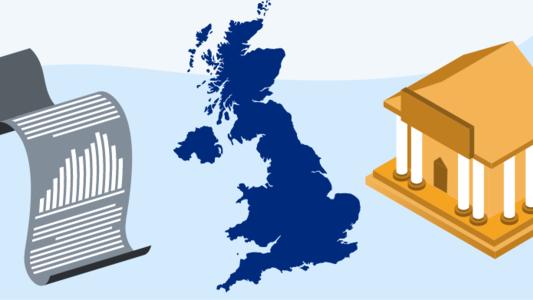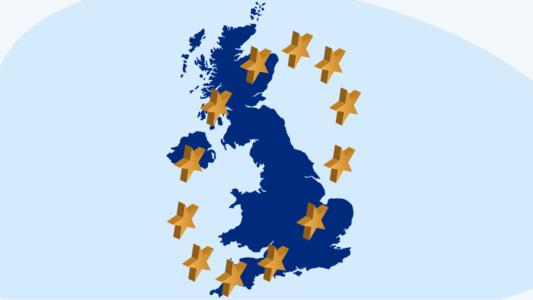How To Settle in the UK in 2022

Are you looking to settle in the UK? Since the UK left the European Union, knowing what the rules and requirements are to settle in the UK have become more confusing. In this guide, we go through all the steps when moving to the UK.
Why Come to the UK?

The UK is a land of opportunity for so many around the world. With English as the first language and a lower cost of living to the United States, Britain allows for so many people to optimise their potential, whether through academia or working.
Having been in the European Union, Britain still has a close connection with the continent and, even with Brexit, many Europeans still want to settle in the UK to make it their home or to take advantage of the high class universities around the country. Beyond Europe, as a member of the Commonwealth of Nations, Britain is still a clear choice for many all around the world in Africa, Asia, and Oceana.
What Has Changed with Brexit?
When the UK voted to leave the European Union in 2016, many people were worried how it would affect their status in the country or for settling in the future. With the UK’s official withdrawal from both the EU and the European Economic Area (EEA) in 2020, the following has changed for European and British citizens living in Europe:
- Freedom of movement and settlement
European citizens no longer have the right to settle freely in the UK without needing a visa. If you are from Europe and want to settle in the UK permanently, you will need the right visa. - Points Based Immigration System
The UK has decided to adopt the Australian-style points system for immigration. This means foreign nationals wishing to work in the UK will have to have a minimum number of points (this includes qualifications, criminal records, etc.) - Proof of English Knowledge
Before you can settle in the UK, you need to prove that you have at least a B1 level of English.
Generally, if you are just going to visit the UK, you will not need to get a visa, but if you are coming to work or study for a long time, you will need to apply.
If you are an EU national and have been living in the UK since before the 31st of December 2020, you are eligible to apply for the EU Settlement Scheme in order to secure your status in the UK.
Do I Need a UK Visa?

In most cases, if you are coming to the UK to visit (or at least under 6 months), you will not usually need to get a visa. However, if you plan to stay longer than 6 months or you are going to either work or study, you will need to obtain a UK visa.
What UK Visa Types Are There?
The type of visa you’ll need for your stay in the UK will depend on three points: where you come from, what you want to do in the UK, and how long you want to stay. Skilled workers and students have particular visas for their type of stay.
Here’s a table detailing the UK Visa types:
| Visa Type | Period | Cost |
|---|---|---|
| Standard Visitor | 6 months | £100-£200 |
| Skilled Worker | 5 years | £625 to £1,423 |
| Student | 5 years | £363-£490 |
| Short-Term Study | Up to 11 months | £200 |
| Child Student | 3-6 years | £363-£490 |
It’s also possible that you will not need a visa to enter the UK. Citizens of several countries and territories, including the United States, Australia, Israel and Hong Kong, are able to visit without a visa. However, for a stay longer than six months, a visa will be required.
A few Persian Gulf countries (Kuwait, Oman, UAE and Qatar) can purchase an electronic visa waiver for only £30, eliminating the need for a visa for visits of less than six months.
If you’re a citizen of British Overseas Territories or of Commonwealth countries and you were born before January 1983, you’ll be able to visit the UK without a visa, but obtaining a residency permit will be required in order to stay permanently.
What Is the Right To Work in the UK?

The right to work in the UK as a foreign national are your guarantees to be able to work legally. Depending on what your nationality is, the rules may vary, although since Brexit everything has become more or less the same for everyone.
Right To Work in the UK Checklist
You will need to apply for a permit via a points-based system that favours highly skilled individuals (known as the Skilled Worker visa).
You’ll need to have a job offer from a licensed sponsor as well as a certificate of sponsorship. Your employer, not you, will make the final application at least four weeks before you begin working.
To complete the process you’ll need:
- A valid passport from your home country.
- Your birth certificate.
- Proof of B1 English Knowledge
- Documentations of all degrees, references and qualifications.
- Previous work permits if applicable.
- Your entry visa.
Any documents should be officially translated into English.
This is not an exhaustive list and it may vary depending on the job you are applying for, however these are the basic requirements for the right to work in the UK.
Right To Work for EEA Nationals
Before Brexit, If you are coming from a country in the European Economic Area (EEA) or if you are coming from Switzerland, you were able to come to the UK and work freely on your EEA, or Swiss passport.
Since the UK has left the EEA along with leaving the European Union, this means that you will now need to apply for a Skilled Worker visa if you want to work in the UK.
What is the EEA? The EEA is the European Economic Area, or sometimes referred to as the Single Market. It is a free-trade area that includes both European Union members and EFTA members (Norway, Iceland, Switzerland, and Liechtenstein). Within the EEA, there is free movement of labour but greater restrictions on residence. The UK left the EEA along with leaving the EU.
Coming from a British Commonwealth country
Most Commonwealth citizens will need to apply for a work permit, following the same procedure as EEA and Swiss nationals. However, you don’t require a work permit if your circumstances match one of the following:
- You had one grandparent born in the UK.
- One or both of your parents were British citizens.
How Do I Sort Out UK Schools and Universities?

If you are relocating to the UK with your family, you will need to sort out UK schools so your children will not miss out on their education. If you yourself are coming to study higher education, you will need to make sure you meet all the Student visa requirements.
How Do UK Schools Work?
There are five main parts to education in the UK:
- Primary School
Education for all children aged 5-11. - Secondary School
Education for all children aged 11-16. - Further Education
Where some students who have finished secondary school prepare and take A-levels, or Scottish Highers, and/or vocational courses. - Higher Education
University or equivalent education, as well as post-graduate education.
Primary and Secondary education up to the age of 16 are legally required for everyone in the UK. Further education is optional, but in England and Wales it is needed for any students who wish to attend a university or other higher education.
University Access for Foreign Students
If you want to pursue your higher education at a UK university, you will need to apply for a Student visa whether you are from. In order to apply for a Student visa, you will need to have one of the following:
- Place offered at a university
- Money to support yourself and for your course
- B1 level of English
The cost of the Student visa is between £363-£490 and it will usually take around 3 months to get a decision on your visa application. After you have received your visa, you’ll be able to stay in the UK for up to 5 years.
You’ll need to apply to the university of your choice through the Universities and Colleges Admissions Service (UCAS). First, you should research which courses you’re interested in, before applying through the same web portal. You’ll also need a recommendation, ideally from a teacher who knows you well.
Where To Live in the UK?

When deciding where to settle in the UK, there are so many options to consider as the UK is really quite a diverse place to reside in. Starting with the four countries of England, Scotland, Wales, and Northern Ireland, you have a range of different urban and rural areas to choose from.
What About Moving to London?
Moving to London is a popular choice for those wanting to settle in the UK. Its cosmopolitan and international atmosphere is very attractive, and London is by far the UK’s biggest city. If you are, like many others, moving specifically to London, here are a few things to keep in mind.
With almost 9 million people, London is by far the biggest city in the UK. It’s also, outside of the concentrated city centre, a sprawling metropolitan area.If you’re looking for housing in London, it’s important to have at least a basic idea of its geography and different boroughs.
London has some of the most expensive housing prices in the world! Be sure to keep that in mind as you plan your moving budget and begin your house-hunt. Generally speaking, the closer to the centre of the city you’d like to live, the more you’ll have to pay.You should make sure you have enough money to make rent each month.
How To Set Up Utilities

The UK does its utilities a little differently than from other parts of the world. For your gas and electricity, you will generally have either a credit meter (direct debit) or a prepayment meter where you have to top up with a key and card. The UK has a private energy market with a great number of different suppliers to choose from. You should find out which will be best for you based on your property.
When you set up your water bills, you don't get to choose who your supplier is as it is based on your postcode. You can find out who your water supplier by using our handy postcode checker!
You will also find that TV services are little different in the UK compared to the rest of the world. The good news is you'll have access to BBC services, the bad news is that you will need to pay for a TV License in order to watch live broadcasting.
Check our our Moving Utilities Guide!





